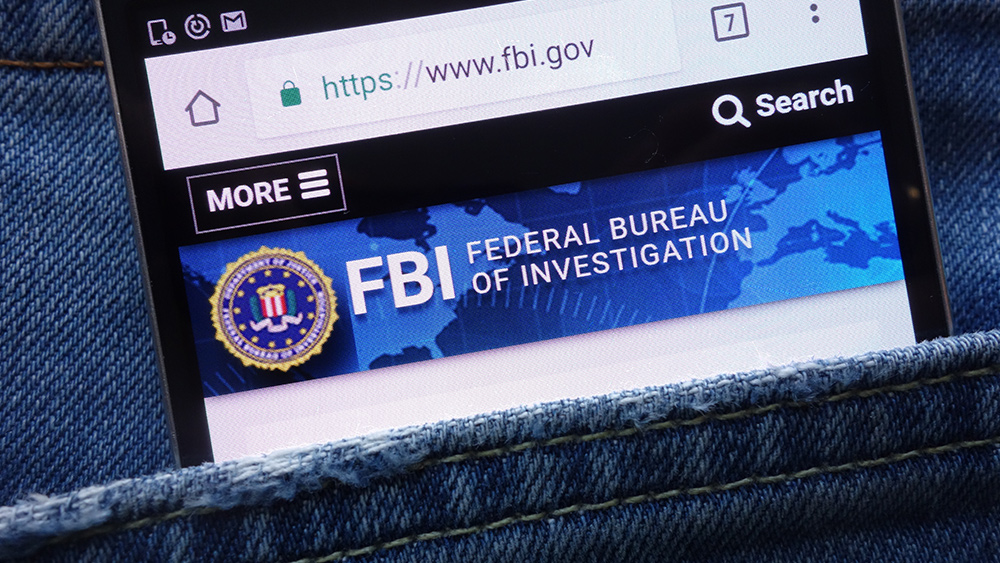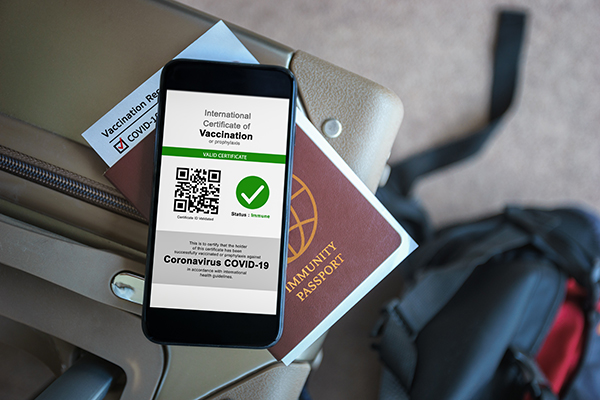Track ’em young: Newborns in Kenya are being used to develop a biometric vaccination management tracking program
05/23/2023 / By Laura Harris

A controversial clinical trial of a biometric-based vaccine tracking system in Kenya uses newborn babies to manage vaccination history and schedule. The new digital biometric management system uses fingerprint identification for newborns and voice recognition for caregivers to collect their data.
The new system, developed in partnership with the NEC Corporation, the Kenya Medical Research Institute (KEMRI) and Nagasaki University in 2019, aims to expand its biometric vaccine tracking initiative to ensure accurate and efficient monitoring of immunization records in the first 24 months of the babies’ lives. (Related: New baby biometric monitoring devices threaten to disconnect parents from their newborns.)
The project seeks to address paper-based documentation issues and incomplete immunization records. By adopting the biometric approach, KEMRI and Kinango Sub-County Hospital hope to support the United Nations Sustainable Development Goals (SDGs) in establishing a solid and foolproof system to ensure every child receives the necessary vaccinations at the appropriate time.
During the testing phase that started in September last year and scheduled to last through May, healthcare providers reported increased efficiency, reduced errors and improved vaccination rates covering 1,000 newborn babies and their caregivers. The success in this initial phase has encouraged the government to scale up the implementation of biometric vaccine tracking across the country.
Gathering digital ID and biometric data carries risk for vulnerable groups
Up to 20,000 children will have their fingerprints taken and linked to their records in existing health projects. Simprints, a UK-based not-for-profit enterprise specializing in biometric technology in international development, will manage the collection effort.
According to Christine Kim, the head of strategic partnerships at Simprints, they will apply data protection standards equivalent to the European Union’s General Data Protection Regulation (GDPR).
Still, gathering digital ID and biometric data poses a threat to vulnerable groups. Biometrics analysts in humanitarian settings have expressed their concerns on data protection, technology ethics and the risks and benefits of biometric ID in the development and humanitarian aid. Data shared or leaked to hostile entities could be exploited to harm people.
Linda Raftree, commenting on biometrics and aid, noted that “the greatest burden and risk lies with the most vulnerable, whereas the benefits accrue to [aid] agencies.”
Sara Davis, a researcher in public health data and fellow at the Global Health Center of the Graduate Institute in Geneva, emphasized the need to address the ethics of research and development and establish legal safeguards. She also expressed doubts that the concept of fingerprinting toddlers would be accepted or even attempted in wealthy countries with high vaccine hesitancy.
Humanitarian professionals and data experts discussed various threats and unintended consequences of new technologies during a panel discussion on “Digital Do No Harm” held in Berlin last year.
Davis said there is a sense of general experimentation with such technologies, as the development sector is inclined to seek technological solutions to development problems, often viewing them as silver bullets.
For what its worth, NEC Corporation, KEMRI and Nagasaki University have all promised that both fingerprints and voice data will be removed after the trial.
Visit HealthScience.news for more stories about controversial innovations in health industry.
Watch this video to learn more about vaccine disinformation for dummies.
This video is available on The Prisoner channel at Brighteon.com.
More related stories:
Drug babies before vaccinating them, doctors demand.
Pediatricians trying to obliterate parent’s right to refuse vaccinations for children.
Sources include:
Submit a correction >>
Tagged Under:
babies, big government, biometric monitoring, biometric technology, caregivers, conspiracy, disconnect Babies, fingerprint, health freedom, health news, humanitarian aid, Kenya, medical extremism, Medical Tyranny, newborn, pediatricians, surveillance, tracking, vaccination record, Vaccinations, vaccine wars, voice data, watched
This article may contain statements that reflect the opinion of the author
RECENT NEWS & ARTICLES
COPYRIGHT © 2017 PRIVACY WATCH NEWS


















